200 researchers, 17 chairs (including 10 partnered chairs) and 6 research programs.
labex Programs
Programs
Technological entrepreneurship and innovation
Standards, innovation and responsible management
SMEs and sustainable developme
Governance, market strategies and sustainable performance
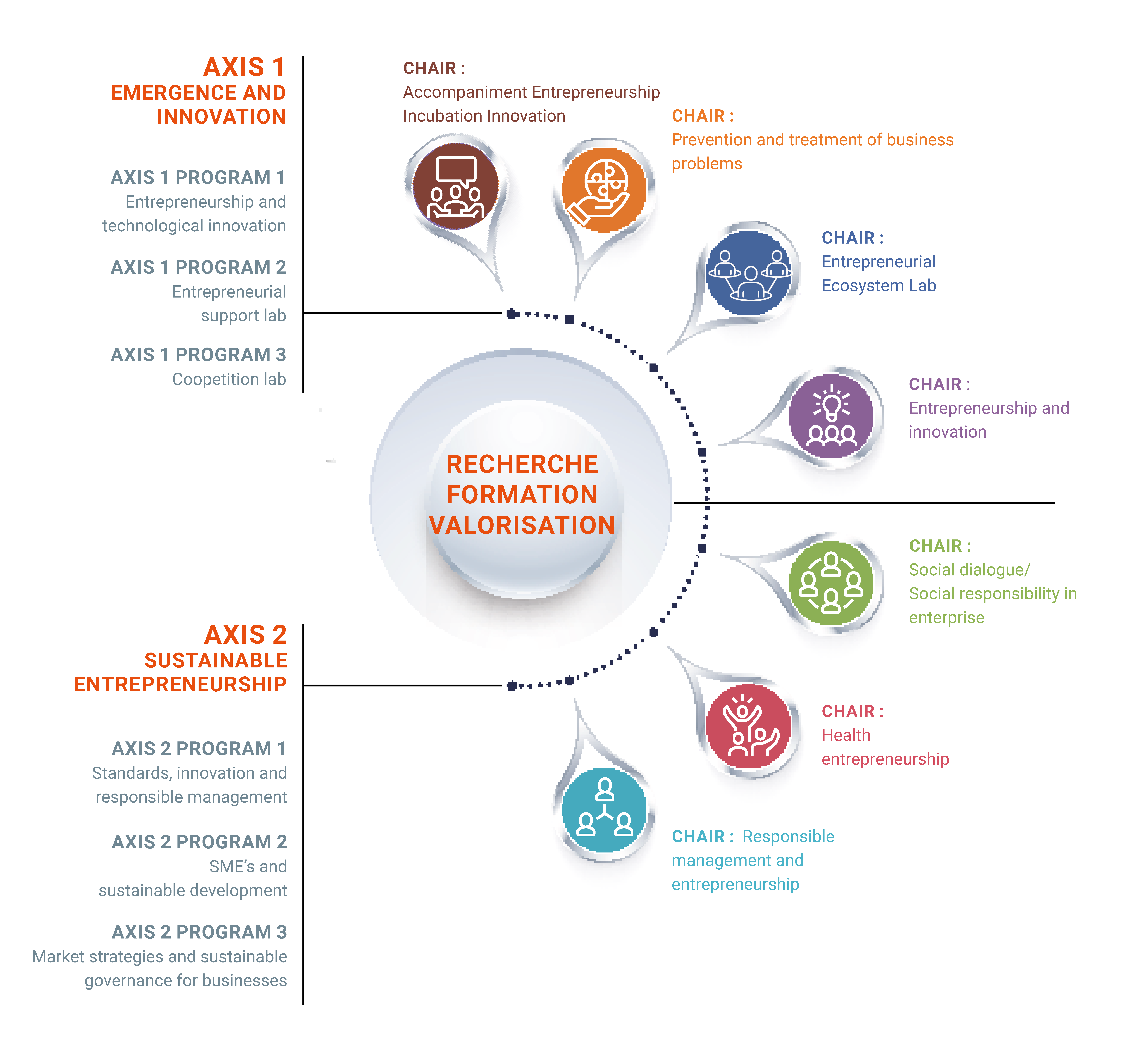
Technological entrepreneurship and innovation
OBJECTIVES
- Work on performance during and after company creation
- Study the population of companies accompanied and supported by incubators
- Define the profile of the entrepreneurial researcher
- Observe the economic weight of the business created
- Observe the processes (managerial and legal) and entrepreneurial approach involved in transferring technology from research to commercial application
- Observe the specific nature of support
ACTIONS
- Refine the skills required to create and develop the observatory
- Develop both qualitative and quantitative studies
- Set up a questionnaire survey
- Analyze the data collected
- Communicate results
RESPONSABLES
Frank Lasch : Professeur associé – Montpellier Business School – mail
Karim Messeghem : Professeur – Université de Montpellier – mail

Entrepreneurial Support Lab
OBJECTIVES
- Understand how incubators carry out their mission of supporting projects by: reducing information asymmetry, helping to build the resources and skills of new companies, establishing learning logics, facilitating the integration of new structures into their environment.
- Build systems to assess incubator performance
- Contribute to improving entrepreneurial public policies
ACTIONS
- Build an observatory and a national database on incubators (in conjunction with major networks such as Entreprendre, Elan, Retis)
- Launch quantitative surveys; carry out international comparisons
- Develop management and performance assessment tools for incubators; contribute to the development of incubator standardization rules
- Build an evaluation model for entrepreneurial public policies
- Write an international collective work on mentoring
RESPONSABLES
Karim Messeghem : Professeur – Université de Montpellier – mail
Sylvie Sammut : Professeur – Université de Montpellier – mail

Coopetition Lab
OBSAP – The Observatory of Alliances, Partnerships and Coopetition:
OBSAP was created in 2013 by the University of Montpellier (Labex Entreprendre), in partnership with l’ASAP (Association of Strategic Alliance Professionals) and ADALEC (French Association of Partner Managers and Business Developers). OBSAP’s mission is to gain recognition in France (at political, institutional, entrepreneurial, academic and other levels) for the value created by alliances and partnerships, as well as for the function of managing these inter-company collaborations. Since 2014, OBSAP has been conducting surveys, by questionnaire and interviews, of alliance and partnership professionals from all business sectors. The aim of these surveys is to create and regularly analyze data on these collaborations, as well as on their management.
RESPONSABLES
Frédéric Le Roy : Professeur – Université de Montpellier – mail
Paul Chiambarreto : Professeur associé – Montpellier Business School – mail

Standards, innovation and responsible management
Objectives :
- To study standardization and contractualization systems in the field of sustainable development
- To assess their impact on the launch of innovative ideas (contractualization of collective relations of companies at the local and territorial level) on the policies of Social and Environmental Responsibility
Actions :
- Build original models to clarify the contractual relations at stake
- Propose economic and environmental policies for use by private partners and local and national institutions
- Hearing all the actors of the social dialogue at the territorial and national levels
- To lead to proposals for legislative reform and to the construction of a guide for local social partners
Responsables :
Edmond Baranes : Professeur – Université de Montpellier – mail
Florence Palpacuer : Professeur – Université de Montpellier – mail
Sophie Spring : Professeur – Université de Montpellier – mail

SMEs and sustainable development
Objectives :
- Describe and understand the conditions of integration of sustainable development logics in the representations of SME managers
- Understand the forms of implementation of these logics in management practices and the consequences on the forms and level (and thus the measurement) of the performance of the organization
Actions :
- Collect a large set of observation data for international comparison See the link of the oiddpme observatory
- To develop various research questions, by combining adapted statistical processing methods and field observations based on qualitative methodologies
- Joining the first epidemiological study conducted by the AMAROK observatory
Responsables :
Jean-Marie Courrent : Professeur – Université de Montpellier – mail
Olivier Torrès : Professeur – Université de Montpellier – mail

Governance, market strategies and sustainable performance
Objectives :
- Identify the strategies, practices and marketing and financial tools that allow the company to develop a sustainable dynamic
- Measure the consequences of their implementation on the company’s performance and their links to the markets (consumers, distributors, stakeholders, banks, financial markets)
Actions :
- To develop new knowledge both on the methods of supporting companies and on their managerial and sustainable development practices
- Develop and test the validity of new tools for evaluating the internal (shareholders and stakeholders) and external (consumers, markets and institutions) governance of new or small companies
- To propose reading grids to the leaders of “start-ups”, SMEs and ETIs to help them in the arbitration between the numerous public and private sustainable development mechanisms
Responsables :
Philippe Aurier : Professeur – Université de Montpellier – mail
Patrick Sentis : Professeur – Université de Montpellier – mail
Guillaume Cheikbossian : Professeur – Université de Montpellier – mail

Programme juridique 1
OBJECTIFS
- Comprendre comment les incubateurs réalisent leurs missions d’accompagnement des projets en: réduisant l’asymétrie d’information, participant à la construction des ressources et compétences des nouvelles entreprises, instaurant des logiques d’apprentissage, facilitant l’insertion des nouvelles structures dans leur environnement
- Construire des systèmes d’évaluation de la performance des incubateurs
- Contribuer à améliorer les politiques publiques entrepreneuriales
ACTIONS
- Construire un observatoire et une base de données nationale sur les incubateurs (en lien avec les principaux réseaux comme Entreprendre, Elan, Retis)
- Lancer des enquêtes quantitatives ; réaliser des comparaisons internationales
- Elaborer des outils de management et d’évaluation de la performance des incubateurs ; contribuer à faire évoluer les règles de normalisation des incubateurs
- Construire un modèle d’évaluation des politiques publiques entrepreneuriales
- Rédiger un ouvrage collectif international sur l’accompagnement
RESPONSABLES
Sylvie Sammut: Professeur – Université de Montpellier – mail
Karim Messeghem: Professeur – Université de Montpellier – mail

Programme juridique 2
OBJECTIFS
- Comprendre comment les incubateurs réalisent leurs missions d’accompagnement des projets en: réduisant l’asymétrie d’information, participant à la construction des ressources et compétences des nouvelles entreprises, instaurant des logiques d’apprentissage, facilitant l’insertion des nouvelles structures dans leur environnement
- Construire des systèmes d’évaluation de la performance des incubateurs
- Contribuer à améliorer les politiques publiques entrepreneuriales
ACTIONS
- Construire un observatoire et une base de données nationale sur les incubateurs (en lien avec les principaux réseaux comme Entreprendre, Elan, Retis)
- Lancer des enquêtes quantitatives ; réaliser des comparaisons internationales
- Elaborer des outils de management et d’évaluation de la performance des incubateurs ; contribuer à faire évoluer les règles de normalisation des incubateurs
- Construire un modèle d’évaluation des politiques publiques entrepreneuriales
- Rédiger un ouvrage collectif international sur l’accompagnement
RESPONSABLES
Sylvie Sammut: Professeur – Université de Montpellier – mail
Karim Messeghem: Professeur – Université de Montpellier – mail
Labex productions
Access articles, papers, books and other Labex publications.
Doctorates
Current and defended thesis
LabEx Entreprendre supports doctoral researchers both by financing doctoral contracts and by providing material support (financing participation in congresses and conferences, providing office space, financing data collection, etc.) for doctoral students whose thesis supervisors are LabEx members. Find out more about PhDs at LabEx Entreprendre.
ongoing thesis
defended thesis
AUGUSTOVA Lasma, Innovation ouverte et développement durable en PME (Sustainable open innovation in SMEs), under the supervision of Jean-Marie COURRENT and Frédéric LE ROY (Thesis co-financed by LabEx Entreprendre and the Occitanie Region)
EL HELOU Carine, Fiabilité et pertinence des informations environnementales et financières des organisations pour la transition écologique sur le territoire, under the supervision of Claire GILLET-MONJARRET and Sophie SPRING (Thesis co-financed by LabEx and the Occitanie Region).
FERHATI Amazigh, The Impact of Risk on “Green Investments” : an Online Laboratory Experiment, under the supervision of Sébastien DUCHENE and Brice MAGDALOU (Thesis financed by LabEx)
Doctoral students list available soon
This list is currently being updated
Post-docs
Contracts offered by labex
BAKHIT Wael, 2022.


























